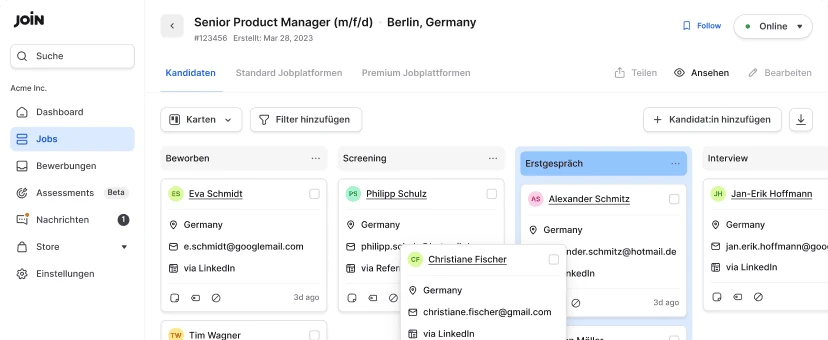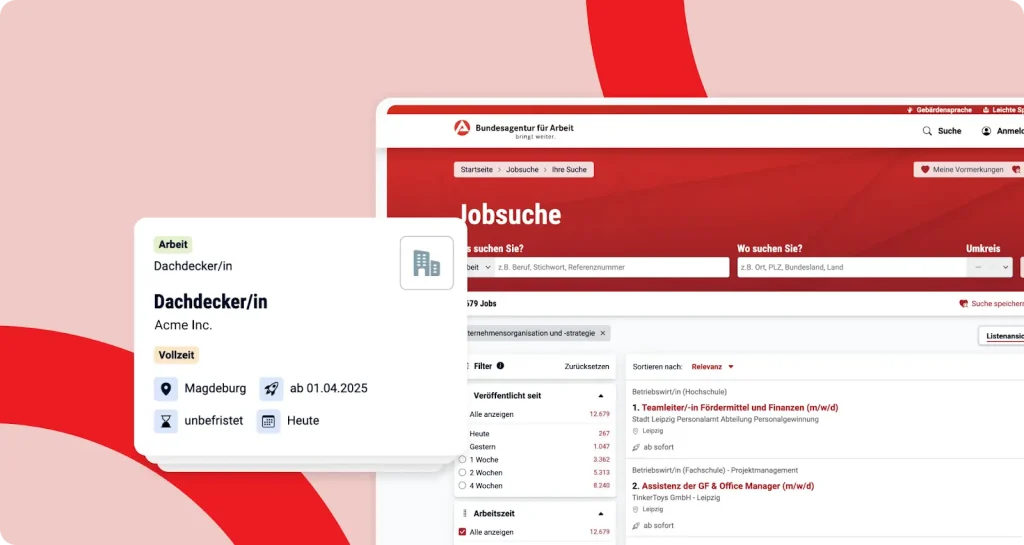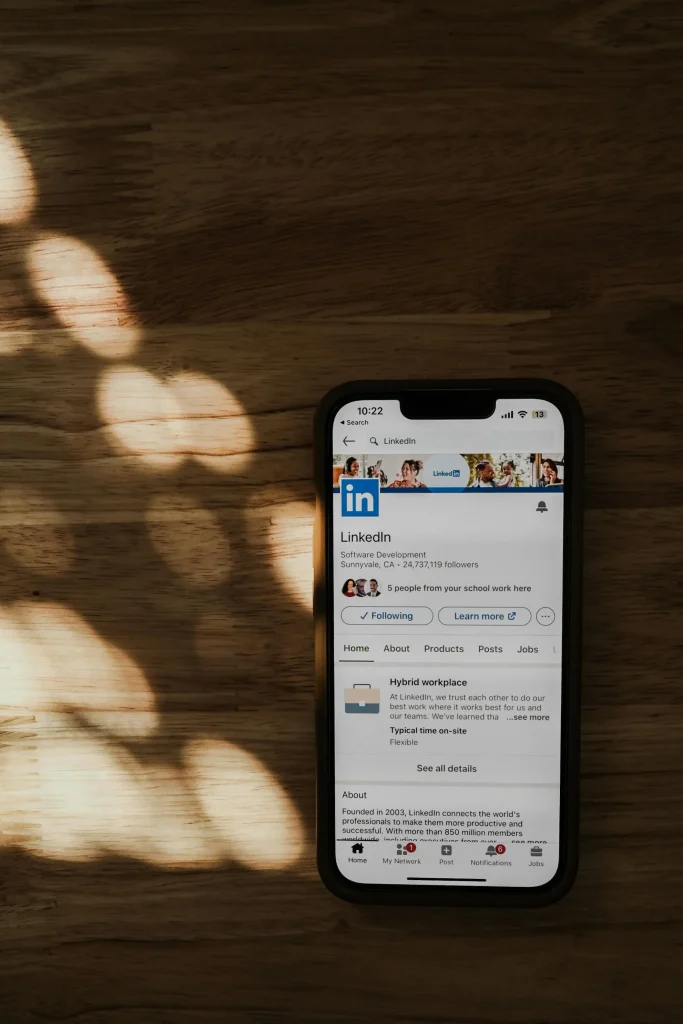Best interview questions for your hiring process
Biomedical Engineer Interview questions
Biomedical Engineers are highly skilled engineering experts who specialise in the healthcare industry. They can help to design tools, equipment and technology that can help to improve all areas from surgery to prosthetics.
These are the skills a Biomedical Engineer should have:
• High level of coding knowledge.
• Extremely knowledgeable in a chosen area of healthcare.
• Ability to use a variety of engineering tools and equipment.
• Perfect level of verbal and written communication.
ª Master’s degree in Biomedical Engineering or a similar area.
Interviewing a Biomedical Engineer
A Biomedical Engineer can make a huge difference in your company and in the lives of your clients or patients. They will be responsible for not only maintaining current technology and equipment, but helping to lead future developments.
So, making the right decision on hiring is critical. That’s why perfecting the interview process for this role is so important. To help guide you, we’ve put together these example Biomedical Engineer interview questions that will help you make an informed decision.
These questions are intended for use at the beginning of your interview process, to help you decide whether to continue with the process. Once you’re at a more advanced stage, more detailed questions will be needed.
How to open the job interview
Grilling your candidate the minute they walk through the door might seem like the best way to get information out of them. However, a candidate who is frozen with nerves is not likely to give their best interview performance.
Instead, it is a good idea to start out with some simple interview questions that will put your candidate at ease and let their skills and personality shine through.
Best interview questions for your hiring process
See our Biomedical Engineer job description hereFor the interview
A positive opener to start
How did you come to decide on a career in Biomedical Engineering?
What is a project you’ve worked on in your career that you’re most proud of?
Behavioral Questions
Can you give an example of a breakthrough technology in Biomedical Engineering that inspires you?
Describe a time you’ve faced a challenge when working on a project, how did you stay motivated and overcome this?
A Biomedical Engineer is constantly faced with technical challenges that will require determination and motivation to overcome them. Knowing this is something they’ve experienced in their career, and that they have techniques to deal with and work through it, is a huge peace of mind.
Tell me about a time you worked on a project that didn’t go the way you planned. What did you do and how did you learn from this?
With a constantly evolving industry such as Biomedical Engineering, not every project will be a success. You need to be able to trust that even if a candidate fails in a project, they will take learnings from this and stay motivated to continue.
What type of working environment have you worked in previously? And which environment do you work best in?
Healthcare is a huge industry. This answer will let you know how similar a candidate’s experience is to your current workplace, and how well they will fit in. Bonus points if a candidate mentions adaptability!
Soft Skills
How would you deal with a colleague whose quality of work was not up to your standard?
Biomedical Engineering is not an industry with room for error, as even a small mistake can have a detrimental impact on a project. The candidate should feel comfortable mentioning the issue to their colleague and offering guidance on how to best remedy the situation.
When working with stakeholders from other teams on a project, how do you explain technical material to non-technical people?
This is a situation that Biomedical Engineers will often find themselves in. Knowing your candidate has communication techniques that help overcome this challenge, such as the ability to explain technical terms in a simple way, is essential.
If you were faced with a challenging project that you weren’t sure how to overcome, what steps would you take to proceed?
Biomedical Engineering is a challenging industry, requiring those who work in it to be research experts. Your candidate should name some resources they turn to for information, as well as mention collaborating with their team to overcome an issue.
What skills do you hold which you think make you an excellent Biomedical Engineer?
This answer will give you an idea of a candidate’s deeper understanding of their role and the confidence areas and skills they have that you may not have considered. They may mention soft or hard skills here.
Hard Skills
What engineering software and systems have you worked with in previous roles?
Here, you’ll get an idea of what a candidate will need to be trained in, as well as any new skills that they will bring to your business.
What experience do you have with medical imaging technology?
This question will give you an idea of a candidate’s area-specific knowledge. The technology type can be changed to suit your specific area.
What programming languages have you worked with in the past?
This answer will give you a better understanding of a candidate’s experience, and how this will fit into your company.
What is the largest engineering project you’ve worked on?
Knowing the size of a project that a candidate is used to working on will better give you an idea of how this will fit into your current workload.
Do you have any experience adjusting or calculating budgets?
Occasionally, Biomedical Engineers will have to give an estimate of the cost of a project.
What specific training have you undergone that you can bring to this role?
Here, you’ll get a further understanding of a candidate’s educational background.
Operational / Situational Questions
Imagine you’re helping to provide research for a new project area, what steps do you take?
Knowing a candidate can efficiently begin a research project, and has some trustworthy go-to sources to begin their research, is a great sign.
Imagine you are given the opportunity to be a Biomedical Engineer in our company, what would your first steps be?
A Biomedical Engineer should be able to hit the ground running. They should quickly get to grips on what projects you are working on, what technology you are using and become familiar with their stakeholders.
Imagine you notice a large mistake in your colleague’s work, how do you handle this?
Biomedical Engineers will often be testing and troubleshooting the code of their colleagues. However, if a large mistake is made then it is good to know that they can help to assist a colleague with learning from this and preventing similar mistakes in the future, rather than just moving on.
Imagine an external stakeholder makes a suggestion to your work that you don’t agree with, what do you do?
In the medical industry, relationships with stakeholders are extremely important. Knowing a candidate can politely navigate this situation while taking comments on board is important. Ultimately, they should be able to back up their decision with data and expert knowledge.

Start hiring and prepare your interview
All platforms are available for you to promote your job through JOIN.
Create job ad for free


Biomedical Engineering is a constantly evolving industry with plenty of breakthroughs. This answer will give you an idea of how well-researched and passionate your candidate is about their industry. You’ll also get an idea of their area of interest.